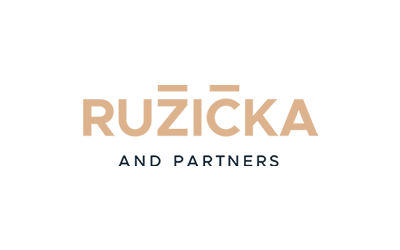The second year of the successful European Compliance Forum took place in Bratislava at the end of April. This two-day event, which was co-organized by the RUŽIČKA AND PARTNERS Law Firm and Deloitte Advisory, focused on the effectiveness of compliance programs and the processes for preventing human failure. Although compliance is still relatively difficult to grasp in the CEE region, it has become an accepted practice among large, mainly multinational corporations, and sets the tone for their management, as well as the conduct of their employees. The forum’s keynote speaker was Cliff Lansley, who specializes in truth and deception detection and strategies for information retrieval and interrogation in high risk and serious situations.
Compliance requirements were introduced in Slovakia several years ago, but implementation is difficult for companies to grasp
According to Lucie Schweizer of RUŽIČKA AND PARTNERS, “Compliance is about conformity. Not only about the accord of values, but also the compliance of business with regulatory requirements. Balance is a key element in compliance. The more individualized the reflection the company provides for the implementation of compliance, the greater its chances of being the right company of the 21st century are. At the same time, compliance makes it flexible enough. Balanced compliance gives the company the opportunity to meet its legal obligations while being more effective in doing business and achieving its basic purpose – generating profits.” Banking and finance is the most regulated sector, and in terms of controls, it is under the strictest scrutiny. For this reason, the practice of its implementation, operation and extension is the most widespread. Meanwhile small and medium-sized companies are concerned about the complications that compliance can bring.
Schweizer understands that doing business can be complicated and cumbersome due to bureaucracy. However, in order to transform our business environment into a transparent, fair and ethical market, adhering to laws and establishing business processes is the alpha and omega. She contends that,“compliance is not a burden or scarecrow. On the contrary. At the end of the day, if a company sets compliance according to its real needs, it gains the opportunity to become more efficient, flexible and profitable.”
Pavla Hladká, a forensic expert at Deloitte, adds,“Understanding the importance of compliance and supporting its implementation is still a challenge for some top managers. Setting the right “tone at the top“, implementing effective compliance programs and preventive measures against fraud in organizations helps businesses manage risks, but it can also help improve corporate culture, employee integrity and strengthen relationships with business partners and regulatory authorities. Regulatory compliance as well as its ethical and forensic aspects hold importance for every company.”
Compliance has a strong place in setting up and running a business – this is how it works in the world
It is true that the difference between the “Western world” and Eastern Europe is still noticeable in the area of compliance. However, it is important to keep in mind the historical developments that have taken place in Eastern European countries. Lucie Schweizer noted that our region is gradually coming to grips with this issue and at times it is more a scarecrow than something they would flock to on their own initiative. In her words, however, the increasing obligations for companies will change their thinking. This is also logical because of the increased risk of new regulations, the emergence of new obligations in introducing innovations and product novelties, all under the pressure of inspections and fines. A company is a living organism that needs to be able to adapt to changes in its external and internal environment, and the failure to do so will eventually bring existential problems. Leadership should be motivating in this regard and set an example for employees. It is natural to link structures between conduct and management actions and the staff. Employees mostly reflect the actions of the management. Naming issues, communicating openly and unflinchingly implementing changes are simple and effective steps toward achieving corporate compliance.
Three basic levels of compliance: ethical, regulatory and forensic. What is the best ratio?
Lucie Schweizer believes that setting the proper ratio between the three levels of compliance is a matter of individual approach but that balance is important: “In practice, we often find that only one pillar is fundamentally dominant in companies. However, in my opinion, this is why compliance is usually unpopular.”
What does forensic compliance bring to companies – is it really just for big companies?
Pavla Hladká of Deloitte Advisory sees forensic compliance as a preventive measure against corporate fraud. In her opinion, the most common motives for breaking the rules and the law are financial distress, defiance and response to pressure from the management, dependence, but also adrenaline – the desire to deceive the system. Most of these things cannot be predicted, detected or influenced 100 %. Strong rules, unannounced checks and systematic monitoring should be applied in every company. She adds, “in companies with a higher risk of fraud, a detection system should be used to combat fraudsters.” Lucie Schweizer states: “Forensic compliance is mainly about detection. In our business terminology, this is referred to as investigation, internal examination, audit, reviews and the preparation of supporting documents to file a criminal complaint. Compliance is seen as a complex system that is impossible to implement in small and medium-sized businesses. But that´s not true. Certainly, the scope of compliance for SMEs is different, but by no means is it impossible.”
For more details on this year´s European Compliance Forum, including a complete list of speakers, go to http://www.ecf-2019.sk/

